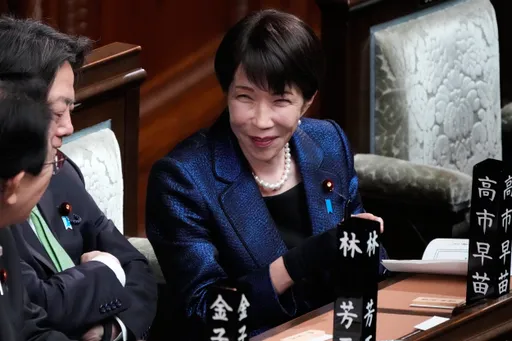Three million voters are set to cast their votes in Kyrgyzstan on Sunday to elect the central Asian republic's fifth president.
In a rarely seen practice among central Asian states, Kyrgyz President Almazbek Atambayev is preparing to step down after the election. The constitution bars him from seeking a second term.
“Some leaders [in the region] think we are giving bad example for their people,” said Atambayev during an interview with TIMEmagazine.
He praised his country as being "more democratic" compared to neighbouring countries, most of which are run by autocrats.
There are 11 candidates in the running for the country's top job, but it is effectively a two-horse race with Sooronbaj Jeenbekov and Omurbek Babanov leading the pack.
Jeenbekov or Babanov?
Jeenbekov, 58, the country's prime minister from April 2016, quit his position in August. The former livestock technician turned bureaucrat was nominated to stand as a candidate by the ruling Social Democratic Party and is backed by the outgoing Atambayev.
Should he win, government policies are highly unlikely to change.
Babanov, 47, who heads up the Respublika-Ata Zhurt or the Fatherland party is said to be the richest man in Kyrgyzstan according to local media reports.
The 47-year-old Babanov, son of a collective farm boss, studied in Moscow and made his fortune in neighbouring Kazakhstan before entering politics. He served as the country's prime minister under Atambayev before quitting the position in September 2012. He had occupied the position for almost 10 months.
He has promised to tackle corruption, constitutional reforms to reintroduce presidential rule, and a more effective foreign policy.
Both of the leading candidates have promised to maintain strong ties with Russia.
“Whoever wins the election will need Russian security and economic support as well as China’s investments in Kyrgyzstan. So, both Russia and China will continue to influence Kyrgyz politics, especially Kyrgyzstan’s fragile security requires Moscow’s contribution in and around the Fergana Valley, which is seen as the hotbed of insurgency, militancy and terrorism in the region,” said Esref Yalinkilicli, a Turkish analyst on Eurasian affairs.
Fergana is a valley in Central Asia spread across southeast Kyrgyzstan, eastern Uzbekistan, and northern Tajikistan where the trio have border disagreements.
He said Russia’s interests will be a major factor in Kyrgyzstan, regardless of who wins the election.
Russia already has a military base in Kyrgyzstan and is in talks with the Bishkek government to set up a second one.
The US also had a military base in Kyrgyzstan which had been the base for the US troops in Afghanistan since 2001.
However, Atambayev pulled the country into Moscow’s orbit, shutting the US base in 2014 after securing a $2 billion loan for Kyrgyzstan from Russia.
“The next president will have to weigh power within a balanced diplomacy between Moscow and Beijing, as well as trying to build good relations with the West, particularly with the US,” said Yalinkilicli.
Relations with neighbours
Another issue that the incoming president will have to tackle is relations with its regional neighbours – Uzbekistan, Tajikistan, Kazakhstan and China – which have not always been the best.
Kyrgyzstan's tense relations with Tajikistan and Uzbekistan date back decades, but were contained during the Soviet Union era.
However, since the fall of the Soviet Union, relations among the former Soviet republics have always been tense due to different issues, such as border disputes. However water is one of the biggest issues that needs to be resolved by regional neighbours.
Control over the management of the Amu Darya (Oxus) and Syr Darya (Jaxartes) rivers, which flow from the mountainous regions of Pamir, Hindu Kush and Tien Shan in Kyrgyzstan and Afghanistan into the Aral Sea, is a critical issue.
“The quarrel over who will control of the water-sharing systems of these rivers, which traverse Tajikistan and Uzbekistan and reaching in the Aral Lake in the northwest, enhances the likelihood of conflict regarding the region’s fragile military, economic, energy and environmental securities,” said Yalinkilicli.
In September, Uzbekistan’s newly elected President Shavkat Mirziyoyev visited Kyrgyzstan as the first official visit at that level in the last 17 years.
President Mirziyoyev hopes to better economic cooperation between the neighbouring Turkic countries which led Atambayev to pay a visit to Tashkent in response to the Uzbek leader's visit, in order to show the Kyrgyz leadership’s welcoming attitudes.
However, the 2010 events that caused the deaths of more than 200 people in clashes between ethnic Kyrgyz and Uzbek communities in Kyrgyzstan's southern cities of Osh and Jalal Abad still stands as a reminder of how difficult the situation can be between the two states.
Bishkek-Ankara strain
Kyrgyzstan’s relations with Turkey have for the most part been amiable as the two countries are trading partners, with leaders of both countries making official visits.
The two have been at odds after Turkey downed a Russian jet for violating its airspace in November 2015 and Kyrgyz President Atambayev sided with Russia, calling for an apology from Turkey.
Relations worsened when the Bishkek government openly refused Turkey’s request to cooperate in its fight against the Fetullah Terrorist Organisation or FETO, on closing the schools linked to the group and extradition of its members hiding in Kyrgyzstan.
Kyrgyzstan is the only country in Central Asia that openly resisted the shutdown of schools allegedly run by FETO, the group who attempted to overthrow the Turkish government in July 15, 2015. The coup attempt failed.
The election outcome might reshape relations between Bishkek and Ankara.























